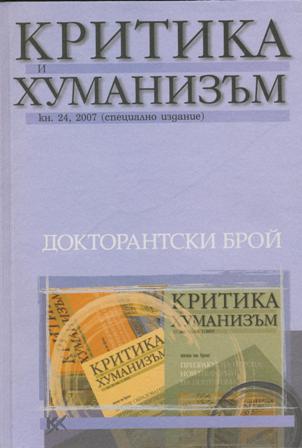Културни “явявания” и философски разбирания за границата в европейското Средновековие
CULTURAL “APPEARANCES” AND PHILOSOPHICAL CONCEPTIONS OF THE BORDER-BORDERDOM IN THE EUROPEAN MIDDLE AGES
Author(s): Gergana DinevaSubject(s): Philosophy
Published by: Фондация за хуманитарни и социални изследвания - София
Keywords: Middle Ages; medieval philosophy; culture; border; boundary; actualization; cultural appearance; perichoresis; Eucharist; Church; transcendental principle
Summary/Abstract: The paper represents a part of historical and philosophical examination of the problem of the actualization of the border as a cultural appearance, on the one hand, and as a specifi c philosophical conception in the Middle Ages, on the other hand, which can give us the specifi c philosophical content of the concept of the borderdom as a dynamic realization of the border, as far as the medieval epoch affords us the opportunity to observe the fi nest and widest philosophical comprehension and the deepest existential manifestation of the borderdom. In order to demonstrate our thesis, we examine the basic cultural manifestations of the borderdom, like the symbolism, the Church and the paradox, and the essential philosophical conceptions, especially that of Anselm of Canterbury, of the possibility of rational knowing of the transcendental principle, which conceptions give us the concrete appearance of the medieval philosophical concept of the borderdom. The text contains also an important interact, which presents a link to the specifi c Byzantine energetic comprehension of the borderdom, by examining the philosophical view of the Church, the Eucharist and the perichoresis.
Journal: Критика и хуманизъм
- Issue Year: 2007
- Issue No: 24
- Page Range: 93-104
- Page Count: 12
- Language: Bulgarian
- Content File-PDF

